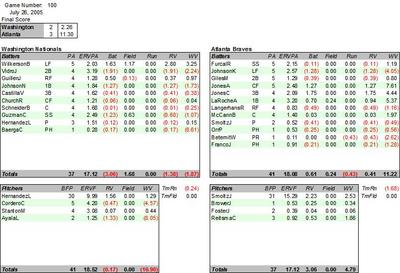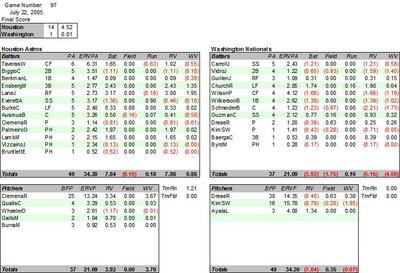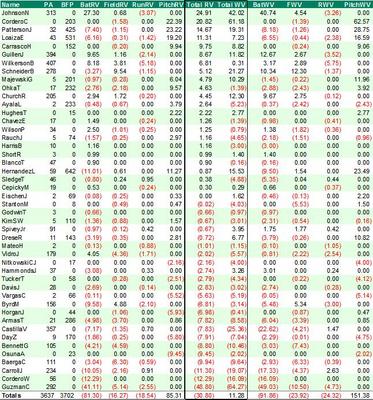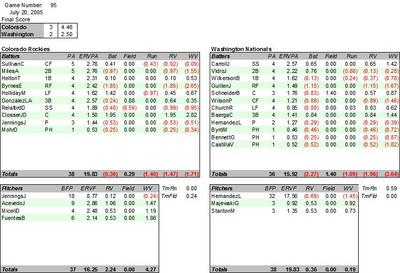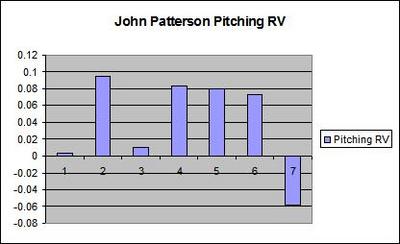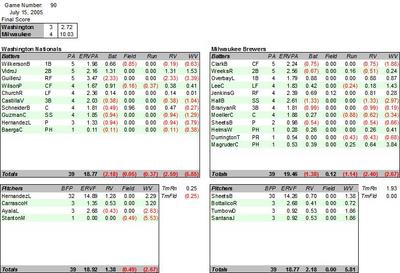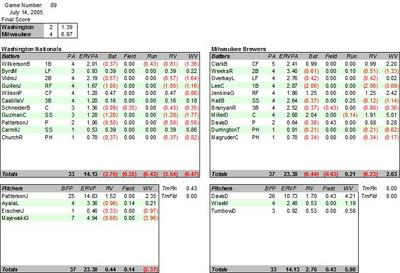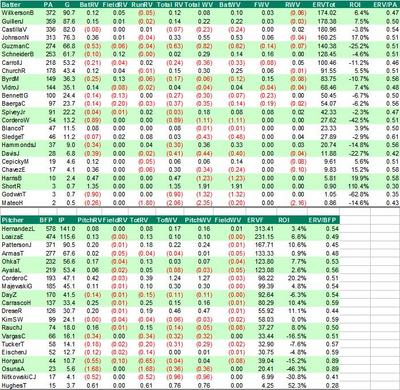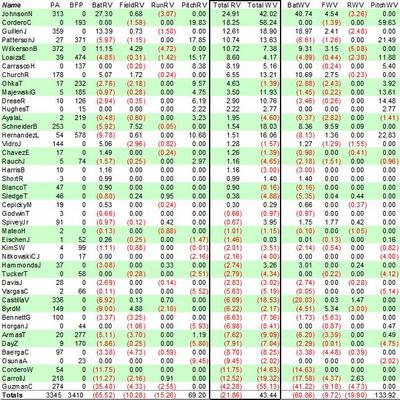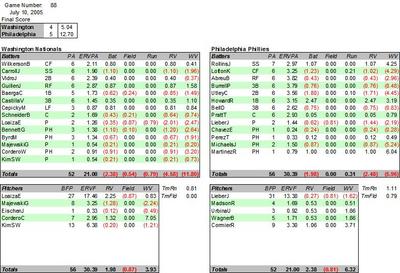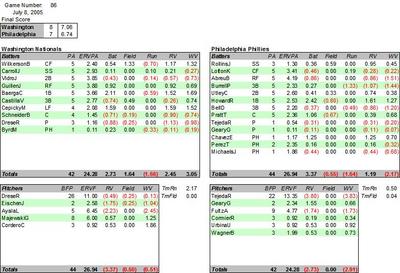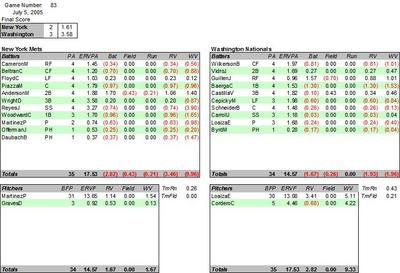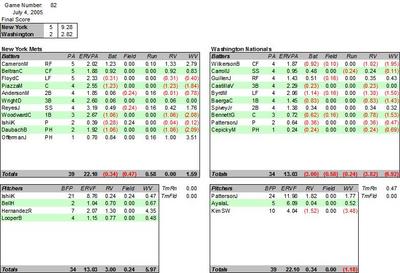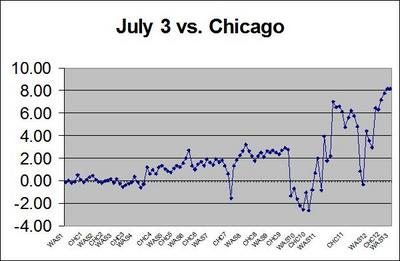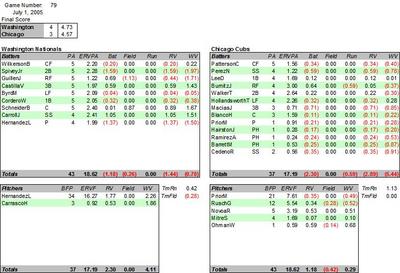Today, in the top of the eighth, scored tied 0-0, Gary Bennett leads off with a walk. The pitcher John Patterson comes to the plate, after pitching 7 innings. Frank leaves him in to bunt, so I thought he was trying to save the bullpen, like he did Tuesday night with Loaiza. Patterson failed to get the bunt down, and the inning fizzled after that.
Much to my surprise, Hector Carrasco, not John Patterson, comes out to pitch the bottom of the eighth. Now, the objection here is obvious -- why didn't Frank pinch hit for Patterson in the top of the inning, if he wasn't going to pitch anymore? He had Marlon Byrd, Tony Blanco, Wil Cordero and Brian Schneider on the bench, IIRC. The objection is a good one, but the fact that he didn't pinch hit tells us something -- something we probably already knew but is now confirmed.
No matter who was going to hit in that at bat, be it Patterson, Byrd, or Blanco, he was going to be ordered to bunt. Frank must have thought that he didn't want to waste a pinch hitter just to bunt, which makes sense, sort of. (There is an objection to this thinking in that you want somebody who can actually bunt at the plate, but that's not what I want to focus on).
But the important thing that this event confirms is this:
Frank thinks a successful bunt in that situation improves your chance of scoring that runner on first. It does not. There is no empirical evidence to prove that conclusion. (
See here,
here and
here for previous posts on that point). What a successful bunt does is
preserve the same chance of scoring for a new batter -- the chance of scoring a runner from first with none out is the same as scoring a runner from second with one out, but in the latter situation you probably have a better hitter at the plate, especially if the pitcher bunts. But Frank can have a better hitter at the plate by simply pinch-hitting, without giving up the out, and the chance of a messed up bunt.
What about the double play, you might ask? First, the analyses in the posts above generally take that into consideration and reveal that it is an unfounded concern so long as the hitter does not have an extraordinary propensity for GIDP. Also, the chance that the batter gets a double or triple or homer counterbalance that. But if you are worried about that, put in a guy who can run, like Marlon Byrd, which alleviates that concern. The point is, if you can have a decent hitter up there, let him swing away.
I know this is an old saw, and protest is futile. But it will come back to haunt us, probably in September at a crucial moment.
And besides, even if Frank brought in Byrd, he would have called for a hit and run.
[UPDATE: Occam's Razor says the best explanation is often the simplest. That may be the case here: Frank's decision to bat Patterson was just incompetence of a simpler nature. Apparently Frank wanted Spivey to pinch hit, but no one told him that Junior had broke his hand hitting off a tee in BP, so then he wanted Livan to pinch hit, but Livan wasn't wearing his jersey (he was comparing pecs and tats with Wil Cordero, I guess), so he had to let Patterson bat. The lesson from this additional information: we ALL need the All-star break!]
